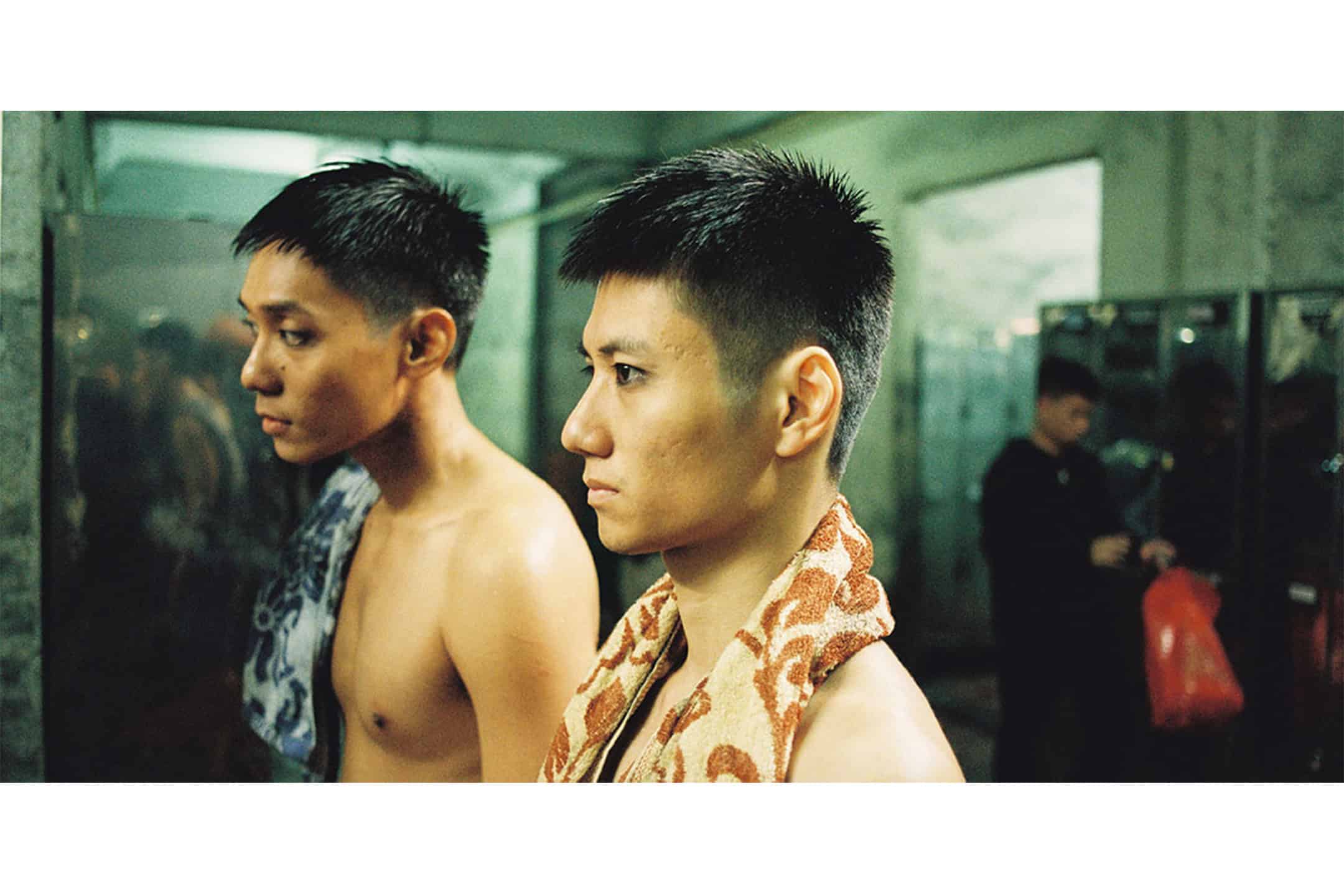The ghost of war casts a melancholic shadow over the present-day tragedies of two coal miners in Viet and Nam. The titular characters, Viet and Nam, though not identified as such during the course of the film, attempt to find breaths of fresh air through one another amidst the coal dust they’re customarily surrounded by.
Viet and Nam’s illicit romance is quiet and completely entrancing in its direction. Director Trương Minh Quý’s 16mm lens invites viewers to immerse themselves in the intimate yet desolate world of the miners, played by Phạm Thanh Hải and Đào Duy Bảo Định. The camera lingers on their faces and hands, capturing the subtle exchanges that relay their affection and yearning for a better life. Nam intends to leave Vietnam through a dangerous route in a shipping container and a river crossing wrapped in plastic, in spite of accounts of martyrized escape attempts. Despite Viet’s deep concern and desire for him to stay, he must grapple with the painful acceptance of Nam’s inevitable departure.
The strongest storyline in the film is its depiction of Nam’s mother, Hoa (Thi Nga Nguyen), and her search for her long-dead military husband’s burial spot. She attempts to find reconciliation by journeying to remote battlefields near the Vietnam-Cambodia border along with another Vietnam war veteran — or the American war, in Vietnamese — whose memories, Hoa hopes, will resurface in time to find her husband’s remains.
Hoa’s life as a coal seller — as well as Viet’s and Nam’s work in the mines — emphasizes the role of the Earth in the narrative, highlighting the deep connection between personal histories and the land. Hoa’s quest for her husband’s burial site intertwines with the miners’ daily labour, illustrating how their lives and losses are rooted in the same soil that bears the weight of their struggles. Quý studies the cyclical nature of life, how dirt and the dead transform into coal, the source of sustenance for Nam’s family, as his and Viet’s relationship ultimately echoes the same impending and unjust severance of his parents. The earth itself seems to be the only witness to their past and present.
In sharing the realities of the widows and families of military personnel, Viet and Nam presents a unique perspective. Hoa, determined to find closure, journeys off into the borderlands of her home. Other wives are shown to pay so-called clairvoyants in pink robes and white facepaint to find their own husband’s resting spot. The episodic nature of the film presents the fragmented realities of the grief ridden characters.
Cinematographer Son Doan captures Vietnam’s greenery and the stark contrast of its harsh landscapes with a striking visual clarity. His lens immerses viewers in the lush, vibrant beauty of the countryside, while exposing the rugged, unforgiving terrain where the characters’ lives unfold. Perhaps the most striking scenes of the film are with Viet and Nam tenderly holding one another in their secluded alcove within the mines. The coal surrounding them glistens like stars. Doan and Quýcreate a dichotomy between the serene, natural world and the gritty, labour-intensive reality of the coal mines in breathtaking scenes.
Viet and Nam’s most unexplored aspect is perhaps the relationship of the titular Viet and Nam. While laden with physical and intimate moments between the two, their sparse ennui-filled glances leave viewers wanting more. The film evocatively portrays the characters’ intimate moments, but their relationship often feels elusive, with the narrative focusing more on the external struggles and less on the emotional depths of their bond.
Viet and Nam excels in evocative visuals and poignant depictions of both personal and historical struggles, blending pasts and futures, the worldly, and the metaphysical. The film captures how the characters’ physicality — through their labour, touch, and presence — becomes a crucial aspect of their emotional and existential journeys. Although the sleepy, winding effect of the story is perhaps purposeful, it does demand a great deal from even its most resilient viewers. It’s difficult to let oneself go in the relentlessly haunting world of Viet and Nam. However, those that let themselves become absorbed in the meandering, sensuous storytelling will find themselves rewarded.



No comments to display.